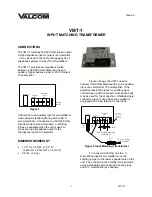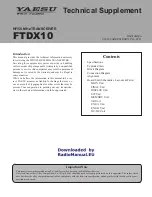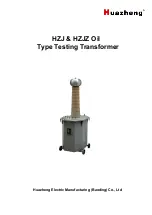
8. INSTALLING THE PREAMP
For the next portion of the installation, be careful not to catch
the pickup on anything as you work; inadvertent tugging may
cause damage to the transducers or pull the connectors off the
pin headers at the preamp.
Regarding AST, please note to lift one corner of the protective
layer of the mounting adhesive so it is easier to remove later.
Take the preamp assembly inside the guitar and install it to its
place. Let the transducer(s) and wire harnesses hang loose in-
side the guitar at this moment. Install the front plate and attach
the screws. It is important that you have a good quality screw-
driver to avoid it slipping during tightening and thus scratching
the guitar. Be careful to tighten the screws properly. It may be
wise to tape the area around the front plate with masking tape
in case you slip with the screwdriver. Do not over-tighten the
screws as it may strip the screws, or crack the side of your gui-
tar or the preamp’s faceplate.
At the output jack unscrew the strap attachment, the small
nut and the small dress washer from the endpin jack. Make
sure that the large nut; lock washer and large dress washer are
threaded onto the jack almost all the way to the opposite end of
the output of the jack.
Next, test-fit the jack the endpin hole. It is easier to install the
output jack by using an ink pen (or something similar) that fits
into the jack. Put the pen through the hole at the guitar where
the jack will go and with the other hand holding the output jack,
and that going through the sound hole, put the jack on the pen
and guide it through the hole of the guitar. Adjust the large nut
so that only the smaller threaded section comes almost entirely
out of the guitar. Put the dress washer and the small nut onto
the threads outside the guitar. Tighten securely using an appro-
priate wrench. Prevent the jack from rotating during tightening
by inserting a small Allen wrench into the holes of the end of
the jack. Install the strap attachment. Be careful not to over-
tighten it, it just needs to be snug. Connect a fresh 9-volt battery
to the snap-in connector and put it in the battery holder. Attach
the battery wires to the side of the guitar with the cord clamps.
Roll the extra cord as a “coil” in some of the clamps if necessary.
9. INSTALLING THE TRANSDUCER
If installing UST, do it now. Thread the B-Band UST up from in-
side the guitar through the hole in the saddle slot. It is easier to
find the hole inside the guitar if you insert a small screwdriver or
toothpick from the top through the hole as a guide. Fit the UST
all the way to the other end and bottom of the slot. Then put the
saddle in place.
For installation of the 1470 AST (steel string guitars; x-braces),
place two bridge pins in their holes, one at the low “E” string
side and one at the high “E” side. Set the bridge pins normally.
This, with the cardboard installation template / AST assembly will
guide the AST to fit correctly. Having the AST cardboard instal-
lation template / AST assembly lying on the bottom of the guitar,
remove the adhesive protective layer from the AST. Lift the as-
sembly up and guide the assembly so the bridge pins insert the
guide holes and carefully place it to the bridge plate. Then stick
it firmly by holding and pressing firmly with fingers for a short
while. Next carefully remove the cardboard installation template.
Make sure the AST fits there tight and secure.
Inside the guitar, make sure that the UST or AST leads do not
touch anything. We do not recommend attaching the “lead” wires
of the UST or AST to the guitar by any means. This may cause
excessive handling noise and resonance that sounds like distor-
tion.
For AST remove the adhesive protective layer from the AST. Then
stick it firmly by holding and pressing with fingers for a short
while. If necessary, you can remove the AST shortly after attach-
ing, but be careful when doing this. Carefully lift under the edge
of the AST, with your fingernail, and work it off slowly. Don’t at-
tempt to lift the AST off by pulling on the transducer lead. Peel
the adhesive off the wood, rather than peeling the pickup off the
adhesive. At installation this can be removed and reattached two
or three times.
Note! After 24 hours the adhesive will dry and it will be hard to
remove. Removal after this time may damage the pickup.


































